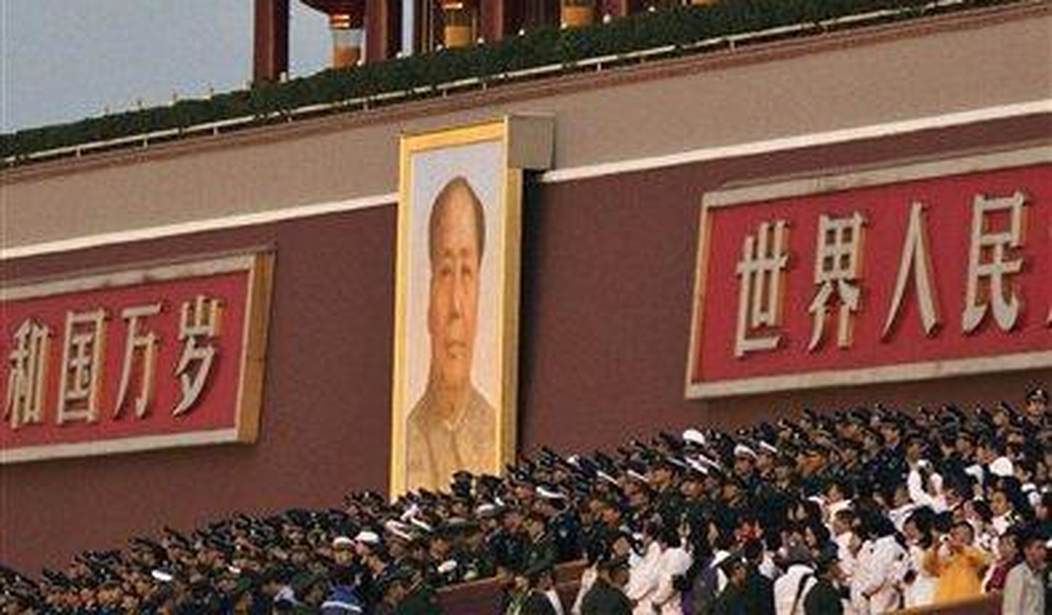Not long ago, Japan stood where China does today: top threat to America’s title as the world’s preeminent economic power. In the 1980s and 90s, Japan even appeared likely to succeed, with books such as Japan as Number One: Lessons for America becoming best sellers.
Then, in a blink, Japan’s economy collapsed with the bursting of a massive asset bubble from which it never truly recovered. Overnight, the Empire of the Rising Sun became a setting one.
Analysts have recently taken to highlighting stark similarities between Japan before its fall and China now. Begging the question of whether Japan’s fate foreshadows China’s own.
If demographics are destiny, then China has much to fear in this regard. Demographic reversal was after all at the heart of Japan’s fall. And like Japan then, China has a rapidly aging population. If anything, China’s demographics are even more severe.
China’s population is already declining and poised to continue to do so. Indeed, China is facing what has been described as a demographic time bomb. By 2035, China is projected to have more than 400 million people aged 60 and older (for perspective, the entire current U.S. population totals only 335 million.) China is also staring at population loss on a historic scale, with some studies showing China’s population nearly halving over the next 45 years. Based on China’s current population of just above 1.4 billion, that would equate, in less than half a century, to the loss of a staggering 700 million people.
This demographic catastrophe in the making was largely caused by China’s one-child policy, implemented in 1979 and not abandoned until 2016. This terribly ill-conceived and cruel policy suppressed China’s population growth for decades. It also resulted in a considerable gender imbalance in China, due to a strong cultural preference for boys, that has drastically reduced family formations, as well as produced a great many very lonely guys.
Recommended
Exorbitant living and education costs, the Covid 19 pandemic, and an archaic hukou household registration system that separates rural citizens from urban ones, have all furthered depressed Chinese fertility rates in recent years. And to date, economic incentives and other pro-childbearing policies have had no real effect in reversing the trend. Like Japan, for cultural and political reasons, China is also unable or unwilling to bring new young people in through immigration. To the contrary, people are far more likely to emigrate out of China than in.
This “Japanification” presents a massive impediment to China’s grand ambitions of becoming the world’s paramount nation. After all, how do you sustain robust economic growth with a precipitously declining workforce? Or build military strength and project global power while spending enormous chunks of GDP supporting and caring for nearly half a billion elderly people?
To make matters worse, the calm global conditions that enabled China’s meteoric rise have disappeared. China is now faced with exactly the opposite: a deglobalizing world of intense Cold War competition with America and its allies actively seeking to thwart China’s economic and geopolitical aspirations.
But while Americans may feel somewhat comforted by the prospect that China, like Japan, will simply extinguish harmlessly as an economic and geopolitical adversary, there is also cause for serious concern.
As author Hal Brands posits in his book The Danger Zone a declining China may be even more aggressive and prone to risk-taking than a rising one, as the window of opportunity to achieve its ambitions closes. In this respect, Brands views the next decade as the critical period before China’s demographic and other domestic challenges truly take effect.
Magnifying the pressure, Xi Jinping, who has cast himself in the role of a great man of destiny and compelled others to as well, has stoked the fires of Chinese nationalist sentiment to a fever pitch. Domestic expectations of China’s “unstoppable” rise are now simply enormous. If Xi fails to realize them, would he or the CCP, even be able to survive? Xi may deem it necessary, and politically useful, to increase tensions with the United States, as nothing distracts from domestic travails like an existential external threat.
Indeed, China is already becoming more aggressive. In recent weeks alone, China has brazenly sent a spy balloon across the continental United States, openly threatened imminent conflict with the US, and announced huge increases to its defense budget. These actions may be merely a harbinger of things to come as China’s demographic condition worsens.
Of course, it is possible that China could successfully disarm its demographic time bomb or perhaps at least diminish its blast radius. China could, for instance, discover a novel way to suddenly juice fertility rates, or supplement lost economic production through technological innovation. And if all else fails, the CCP could simply resort to forcing people to have children, something based upon past experience, they are certainly not above doing.
But time is not on China’s side. With each day that passes by the demographic situation grows ever more dire, and the specter of Japan looms larger.
At this point, though, the future is still uncertain. And whether China can ultimately avoid Japan’s fate and overtake America, or become just another failed contender, remains an open question. Discovering the answer, however, may prove to be an extremely dangerous endeavor.
Buckle up, the highway to China’s demographic danger zone is sure to be a very bumpy ride.

























Join the conversation as a VIP Member